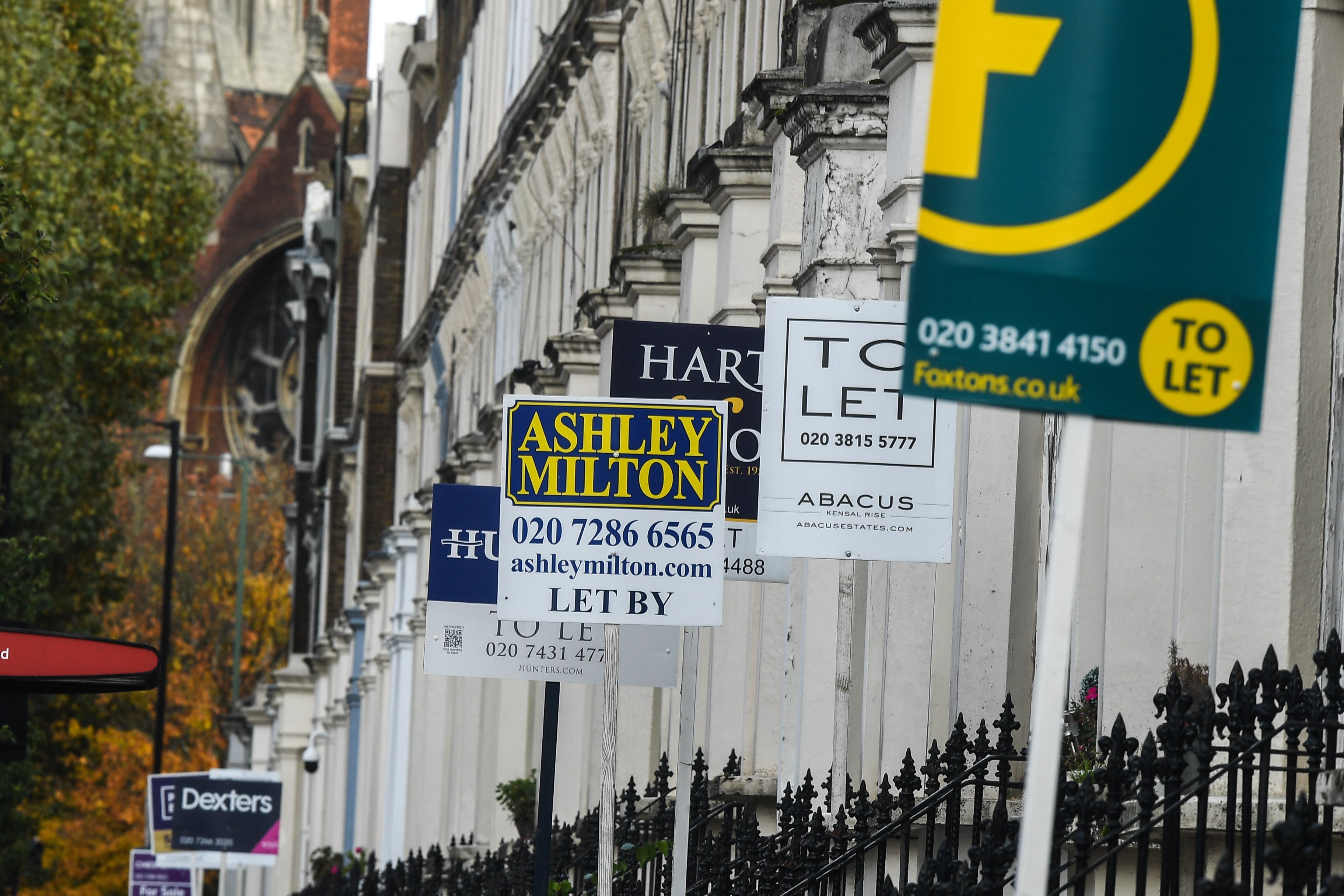Renters short by £360m as pandemic protection disappears
Evictions resume without plans to address arrears built up during the pandemic while landlords receive £11bn in support

Tenants caught between the pandemic fallout and rising housing costs are now more likely to lose their homes after the ban on evictions expired this week leaving £360m of rent unpaid, poverty activists warn.
Evictions can now resume again in England after a pandemic hiatus that had protected up to a million people from being forced to leave their homes.
Also, the required minimum period of notice will come down from six to four months, the housing ministry has confirmed.
A group of the most prominent charities and other organisations, including the National Residential Landlords Association, is now calling for the urgent introduction of new grants and no-interest loans to sustain tenancies and act as a “bridge to recovery”.
Almost one in 10 UK tenants is behind with rent, Citizens Advice has warned – more than 350,000 people.
It reports a 24 per cent increase in average arrears from £730 in November last year to more than £900 in April and a significant rise in the number of tenants facing eviction seeking help.
Phil Andrew, of debt charity StepChange, says: “The rental eviction suspension was the last lifeline for many renters, who have been among the groups worst hit by the pandemic.
“The number of private renters in arrears has doubled since the start of the pandemic to 460,000 people. With evictions now resuming, many will be facing an uncertain future without additional financial support.
“Support from Government, such as furlough and benefit uplifts, has been important in helping people through the pandemic but not sufficient to keep many renters out of arrears. There are clear gaps in support which have seen a £360m black hole of rent debt build up over the course of the pandemic.
Get a free fractional share worth up to £100.
Capital at risk.
Terms and conditions apply.
ADVERTISEMENT
Get a free fractional share worth up to £100.
Capital at risk.
Terms and conditions apply.
ADVERTISEMENT
“The Government can help by creating an emergency package of grants and no-interest loans to help rescue those in rent arrears due to Covid. It will help keep people in their homes, avert mounting problem debt, housing insecurity and homelessness and will enable people to get back on their feet after a devastating year.
“What’s more, an extra 30,000 evictions would cost the public purse in the region of £225m, yet almost all of these costs can be prevented by investing a similar amount now.
“The housing secretary said in March 2020 that no one should lose their home due to the pandemic – it’s time for decisive action to back that up.”
With poverty rates among working households at more than 17 per cent – a record high for this century – even before Covid-19 struck, think tank the Institute for Public Policy Research which focuses on social reform identifies the economy’s over-dependence on house-price growth as a key factor in driving poverty higher.
More families rely on renting privately – one in four households is projected to be renting from private landlords by 2025. Housing costs for private tenants have risen by almost half in real terms over 25 years, according to the latest Institute report which also calculates that landlords benefited from more than £11bn of housing support last year.
Senior housing specialist at Citizens Advice, Amy Hughes, says tenants who have been told to leave can’t be evicted immediately.
She says: “For most private tenants, only those at the end of a long legal process will face imminent eviction. Then there is still 14 days’ notice before the final stage, which is the bailiffs attending.
“A landlord who carries out or threatens an eviction without following this process is likely to commit a criminal offence.
“Any tenant who has been issued with a notice seeking possession by their landlord should start by getting advice over whether the notice is valid and if any help is available.
“A landlord notice is step one, it doesn’t mean an eviction can go ahead. If the landlord doesn’t follow the process to the letter of the law tenants may be able to successfully fight an eviction.
“If that’s not possible, a court may make an order for possession. Only when the date set for possession by the court has passed, can the landlord apply for bailiffs to carry out an eviction. This stage is also an opportunity for both sides to sort out their differences.”
There were some circumstances in which evictions were allowed to take place while the ban was in place including more than six months of rent arrears but anyone being evicted for one of those reasons will still get 14 days’ notice.
Hughes says: “Seek advice. In some cases the local council will have a duty to provide alternative accommodation.
“Citizens Advice and other housing charities can also help people find an alternative place to live, or even delay the eviction at this late stage.”
Join our commenting forum
Join thought-provoking conversations, follow other Independent readers and see their replies
Comments
Bookmark popover
Removed from bookmarks